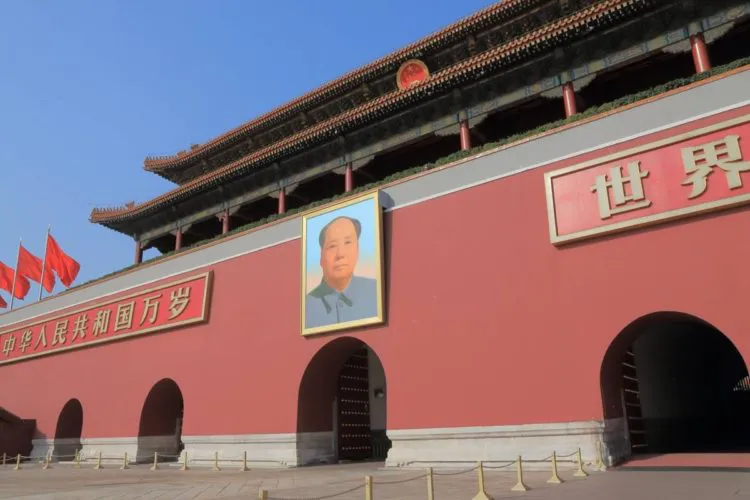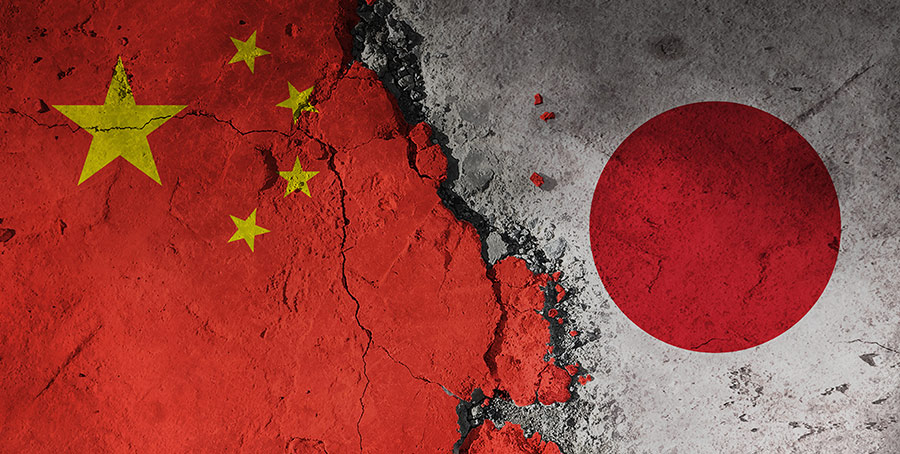The true identity of the stealth dragon
It is no longer possible to completely curb the progress of China’s technological development even if the US regulates Chinese investment in the AI industry. The situation is so urgent that such an investigation report has been issued.
Even if the US regulates investment in China’s AI industry, it will no longer be possible to completely curb China’s technological progress. However, American investors and funds have been aggressively investing in China’s AI development. Critic Masahiro Miyazaki, known as Japan’s foremost China watcher, sharply points out the contradictions in U.S. policy toward China.
This article is an edited excerpt from “Stealth Dragon: Xi Jinping’s Ambition for World Supremacy,” by Masahiro Miyazaki, published by Wani Books.
Is there no morality in Sun Tzu’s Art of War?
The Chinese, who place great importance on Sun Tzu’s Art of War, are most adept at deceiving their enemies.
Politics and diplomacy are based on calculations that prioritize national interests, and diplomacy that prioritizes morality tends to fail. The United States and Japan have been the most blatantly deceived by China. Western nations were also inadvertently deceived by the panda and ended up biting their umbilical cords.
It turns out that U.S. funds have invested heavily in China’s AI industry over the past several years. According to a research report released in February 2023 by Georgetown University’s CSET (Cyberspace Security and Emerging Technologies), 167 U.S. companies, funds, and investors, including Intel and Qualcomm, were involved in a total of 401 AI business deals with Chinese companies over the six years from 2015, with total investments of The total investment amounted to $40.2 billion.
More than 270 Chinese AI companies were involved, accounting for 37% of the total financing of Chinese AI companies during the same period.
Exactly as Vladimir Lenin said, “They also sell ropes to choke themselves.
The media wrote that the race to develop AI was advancing and that a “rosy future” was promised. It is said to enrich creativity, increase productivity, and enrich people’s lives. However, there are also significant risks. Corporate responsibility for safety and usefulness must also be questioned.
On February 23, 2023, the EU announced a policy banning the use of TikTok, a Chinese short-form video posting application, on public Internet terminals. The reason for the ban is to “strengthen cyber security.
The U.S. fiscal year 2023 budget, which was passed in December 2022, already includes a provision banning the use of TikTok from all government-related terminals. Forbes magazine reported that “the operator is monitoring reporters from its China base. An investigation revealed that reporters from “Forbes” and the Financial Times were being monitored by determining their origin and destination areas from IP addresses.
On March 23, 2023, a congressional hearing subpoenaed TikTok CEO Zhou Jieshi and hung him for five hours. In the U.S., 10 states, including North Dakota, Iowa, Alabama, and Utah, have banned state governments from downloading to devices purchased by the government. Japan remains in the wild.
China, which immediately banned “chat GPTs.
The CSET report found that 91% of U.S. investors’ investment in Chinese AI development was venture capital.
Xi Jinping, General Secretary and President of the Communist Party, asserted in 2018 that “accelerating AI development is an important strategic starting point for China to establish an initiative in the global technology race,” and lionized that “China will become a global AI development center by 2030. To achieve this goal, 3% of GDP was allocated for R&D.
China’s budget for AI and related technology development exceeds $1.38 trillion. More than 1,600 AI companies have already been created in China, including 1,239 Chinese AI companies that have raised $110 billion in funding in 36 countries. The largest was $40.2 billion in U.S. funds.
Meanwhile, China’s Ministry of Science and Technology has recognized the importance of technologies such as “chat GPT,” saying, “We will promote the integration of AI into society and the economy. It is likely to be applied in many industrial sectors. Ethical considerations should not limit technologies like chat GPT, which can be effectively developed.”
However, China has banned chat GPT and does not allow general users to use it. Baidu (Baidu) will therefore launch a “Chinese version of chat GPT,” CEO Li Yonghong said, declaring that the company will develop a tentatively named “Emyebolt.
Unwitting Investors and Funds Used
In 2019, the Biden administration ordered the Department of Commerce to create a blacklist, the Entity List, to prohibit the export of technology to Chinese big tech.
Starting in March 2023, Huawei will be banned entirely.
Under Secretary of Commerce Alan Estevez testified at a House Foreign Affairs Committee hearing. Intel and Qualcomm have supplied Huawei with low-level general-purpose semiconductors for smartphones, and have been reviewing applications for export licenses on a case-by-case basis. This is a technology blockade.
According to the Washington Examiner (February 28, 2023), the White House is “suspending 4G sales. . aided espionage,” the Federal Communications Commission had banned the sale and importation of Huawei telecommunications equipment in November 2022 due to national security concerns.
However, one expert noted that
“U.S. investors and funds may have unwittingly crossed paths with the Chinese government in these companies and in these environments. Moreover, given the complex relationships between the Chinese government and the business and private sectors, it is more likely that these AI firms will be responsive to new technologies. Rather than addressing the needs of the markets that investors are most interested in, the West needs to respond appropriately to the policy priorities and pressures of the Chinese government” (“Baoqun News Network,” February 6, 2023).
FBI Director Christopher Wray stated at the Davos conference in Switzerland that he is “deeply concerned about the progress of China’s AI program” (January 2023).
The aforementioned CSET report states that no matter how the Biden administration regulates Chinese investment in the AI industry, it is impossible to completely curb China’s technological progress and requires emphasis and support from allies.
The contradictions in U.S. policy toward China are enormous, and the numbers released by the Commerce Department on February 7 were staggering.
U.S.-China trade in FY2022 was an unprecedented $690.5 billion. This includes $536.7 billion in U.S. imports of toys, games, and light industrial goods from China. U.S. exports to China of soybeans, grains, and other commodities totaled $153.8 billion. The U.S. trade deficit with China is $382.9 billion! (Incidentally, the trade deficit with Japan at the time of the Japan bashing and the fuss was a “cute figure,” with a maximum of $80 billion.)
In other words, the U.S. is increasing U.S.-China trade while carrying out a technology blockade against China. Yet, no one seems to be paying any attention to this contradiction.












